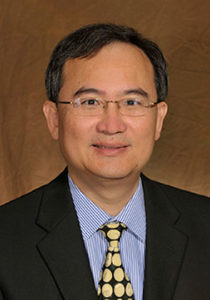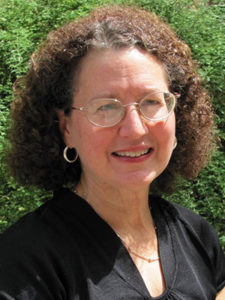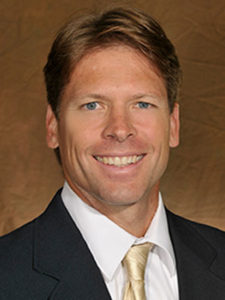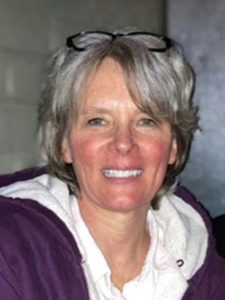Research and Creative Achievement honors are bestowed to senior faculty in recognition of excellence in research, scholarship, and creative achievement.
Joshua Fu
 Joshua Fu is the John D. Tickle Professor and James G. Gibson Professor in Climate Change, and professor of the Department of Civil and Environmental Engineering. The focus of Fu’s research work includes air quality, climate change, energy, and human health. Fu is the vice-chair of the WMO Measurement-Model Fusion for the Global Total Atmospheric Deposition Initiative. He is a recipient of the Fellow of AAAS and A&WMA and AAEES’s Board-Certified Environmental Engineering and Scientists.
Joshua Fu is the John D. Tickle Professor and James G. Gibson Professor in Climate Change, and professor of the Department of Civil and Environmental Engineering. The focus of Fu’s research work includes air quality, climate change, energy, and human health. Fu is the vice-chair of the WMO Measurement-Model Fusion for the Global Total Atmospheric Deposition Initiative. He is a recipient of the Fellow of AAAS and A&WMA and AAEES’s Board-Certified Environmental Engineering and Scientists.
What does being a Volunteer mean to you? How has UT empowered you to make a difference in a way you might not have imagined elsewhere?
I am fortunate to be a Volunteer. It provides me with a passion for research to explore and improve natural and human health. My expertise includes air quality, climate change, energy, and human health, which brought me to serve our state as a governor-appointed air pollution control board member. UT has empowered me to serve not only in the state but also at the international level, such as serving as vice-chair of the World Meteorological Organization’s new initiative, the Measurement-Model Fusion.
Suzanne Lenhart
 Suzanne Lenhart is a chancellor’s professor in mathematics She was a part-time research staff member at Oak Ridge National Laboratory from 1987-2009. Her research involves partial differential equations, optimal control, and mathematical modeling. She works on ecological and infectious disease models and currently works on COVID-19 models funded by the CDC. Our NIMBioS institute opened many opportunities for collaboration internationally on a variety of biological topics.
Suzanne Lenhart is a chancellor’s professor in mathematics She was a part-time research staff member at Oak Ridge National Laboratory from 1987-2009. Her research involves partial differential equations, optimal control, and mathematical modeling. She works on ecological and infectious disease models and currently works on COVID-19 models funded by the CDC. Our NIMBioS institute opened many opportunities for collaboration internationally on a variety of biological topics.
What does being a Volunteer mean to you? How has UT empowered you to make a difference in a way you might not have imagined elsewhere?
Being a Volunteer has enabled me to collaborate on research with faculty and students across many disciplines at UT. This university supported my mentoring activities in many ways, ranging from research experiences with undergraduates to programs with students with disabilities. UT and the NSF supported our NIMBioS programs, which facilitated new areas in my research work and expanded my outreach activities with middle and high school students and teachers.
Philip Rack
 Professor Philip Rack has been a faculty member at the UT Department of Materials Science and Engineering since 2001 and was named the Leonard G. Penland Chair in 2011. Professor Rack held a joint appointment at the Oak Ridge National Laboratory Center for Nanophase Materials Sciences for 16 years and is currently the interim education director at UT-ORII. His research broadly studies nanoscale materials synthesis and emergent properties of nanoscale materials and devices.
Professor Philip Rack has been a faculty member at the UT Department of Materials Science and Engineering since 2001 and was named the Leonard G. Penland Chair in 2011. Professor Rack held a joint appointment at the Oak Ridge National Laboratory Center for Nanophase Materials Sciences for 16 years and is currently the interim education director at UT-ORII. His research broadly studies nanoscale materials synthesis and emergent properties of nanoscale materials and devices.
What does being a Volunteer mean to you? How has UT empowered you to make a difference in a way you might not have imagined elsewhere?
Being a Volunteer means touching the lives of students. While seeing the light bulb go off for students in the classroom is tremendously rewarding, mentoring graduate students for 4-5 years brings me a lot of joy. Watching the transformation that occurs in these students is a privilege and very invigorating. Inevitably, we start with a research goal in mind, but natural curiosity takes us in new directions that I could not anticipate.
Dawn Szymanski
 Dawn Szymanski is a psychology professor. Her research focuses on examining how external and internalized oppression, gender role socialization processes, and culture influence individual experience and psychological health among members of marginalized groups. She also examines positive identity, resilience, activism, and well-being despite the challenges associated with a marginalized status. She is a fellow of the American Psychological Association and editor of Psychology of Women Quarterly.
Dawn Szymanski is a psychology professor. Her research focuses on examining how external and internalized oppression, gender role socialization processes, and culture influence individual experience and psychological health among members of marginalized groups. She also examines positive identity, resilience, activism, and well-being despite the challenges associated with a marginalized status. She is a fellow of the American Psychological Association and editor of Psychology of Women Quarterly.
What does being a Volunteer mean to you? How has UT empowered you to make a difference in a way you might not have imagined elsewhere?
Being a Volunteer means making meaningful positive differences in the lives of those we serve. I am grateful to work at a university that truly values research, teaching/mentoring, and service and provides a supportive and flexible environment to work with others to improve our world.